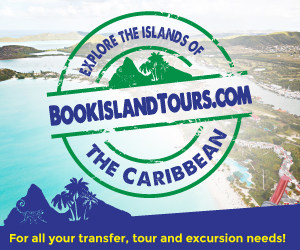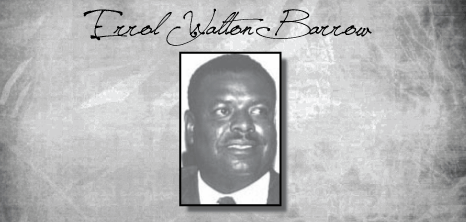|
Rt. Hon. Errol Walton Barrow (1920 - 1987)Born to the late Rev. Reginald Grant Barrow and the late Ruth nee O'Neal in Nesfield, in the parish of St. Lucy on January 21st, 1920, Barbados’ Father of Independence Errol Walton Barrow was born. Born into a family of political activists, he was also the nephew of the legendary Dr. Charles Duncan O'Neal, founder of the Democratic League and brother of Barrow's mother.
Early LifeHe received his primary education at Wesley Hall Boys School and was able to win a scholarship at the age of 11 that took him to Combermere. At the age of 14 he was able to win another scholarship that took him to Harrison College. In 1939, he won yet another scholarship. This time an Island Scholarship that would take him to Codrington College. Barrow chose not to take the scholarship but decided to teach at Foundation School and worked for a brief period in the Petty Debt Court. His interest in the military had risen and in November of 1940, he joined the war effort by enlisting in the Royal Air Force and serving in World War II. Seven years later in 1947, he enrolled at Lincoln’s Inn and entered London University. In 1949, he studied law and successfully completed his bar finals and graduated with a B.Sc. (Econ) the following year. In 1950, he returned to Barbados as a practicing barrister-at-law and was called to the Bar where he had a very successful law practice.
His Political CareerIn 1950 Barrow returned to Barbados with great eagerness for political economics. He became a member of the Barbados Labour Party (BLP) and won a seat from the parish of St. George that same year. In 1955, as a result of great dissatisfaction with the leadership of the BLP, he formed his own political party the Democratic Labour Party (DLP). In the 1956 General Elections, he lost his seat but returned to Parliament after successfully contesting a by-election in St. John in 1958. Barrow successfully lead the DLP to victory in the elections of 1961 and became Premier of Barbados in 1961 until 1966, when he then took the island into Independence from Britain and became the first Prime Minister of the new Nation.
1966 to 1976 and again from 1985 to 1987 were the years that saw Barrow serving this country as Prime Minister. Periods where he left indellible marks on the lives and hearts of many Barbadians.
On December 4, 1961, the DLP won the General Elections and used it as a time to make a mark on the social and economic status of the country. To name a few, unemployed were looked after, road restoration programmes were put in place, secondary education was provided free for all and massive debushing programmes were implemented.
Barbados became a member of the Organisation of American States in 1968 as a result of Barrow and in 1968 along with other regional leaders, he launched the Caribbean Free Trade Area which was the forerunner to CARICOM.
His political and practicing achievements were so etched in the minds of Barbadians that in 1971, he took the DLP into a landslide victory that saw them winning 18 of the 24 available seats in the House of Assembly.
In the 1976 General Elections, Barrow (after 15 years in power) was defeated by the Barbados Labour Party which was under the leadership of J.M.G.M. “Tom” Adams. From 1976 to 1986, Barrow spent in Opposition.
Barrow at the age of 66, made history when he led the DLP to victory in a 24-3 landslide mark.
After just one year in office, on June 1, 1987 the Barrow died suddenly.
Remembering the Father of Our NationIn 1989, January 21 was declared a National Holiday in Barbados (Errol Barrow Day). A public holiday that is used as a time to reflect on the immeasurable contribution Barrow made to the island of Barbados. A contribution that among many things saw us break away from Britain and become independent. In the same year of 1989, the Rt. Hon. Errol Walton Barrow was declared one of Barbados' National Heroes.
|



